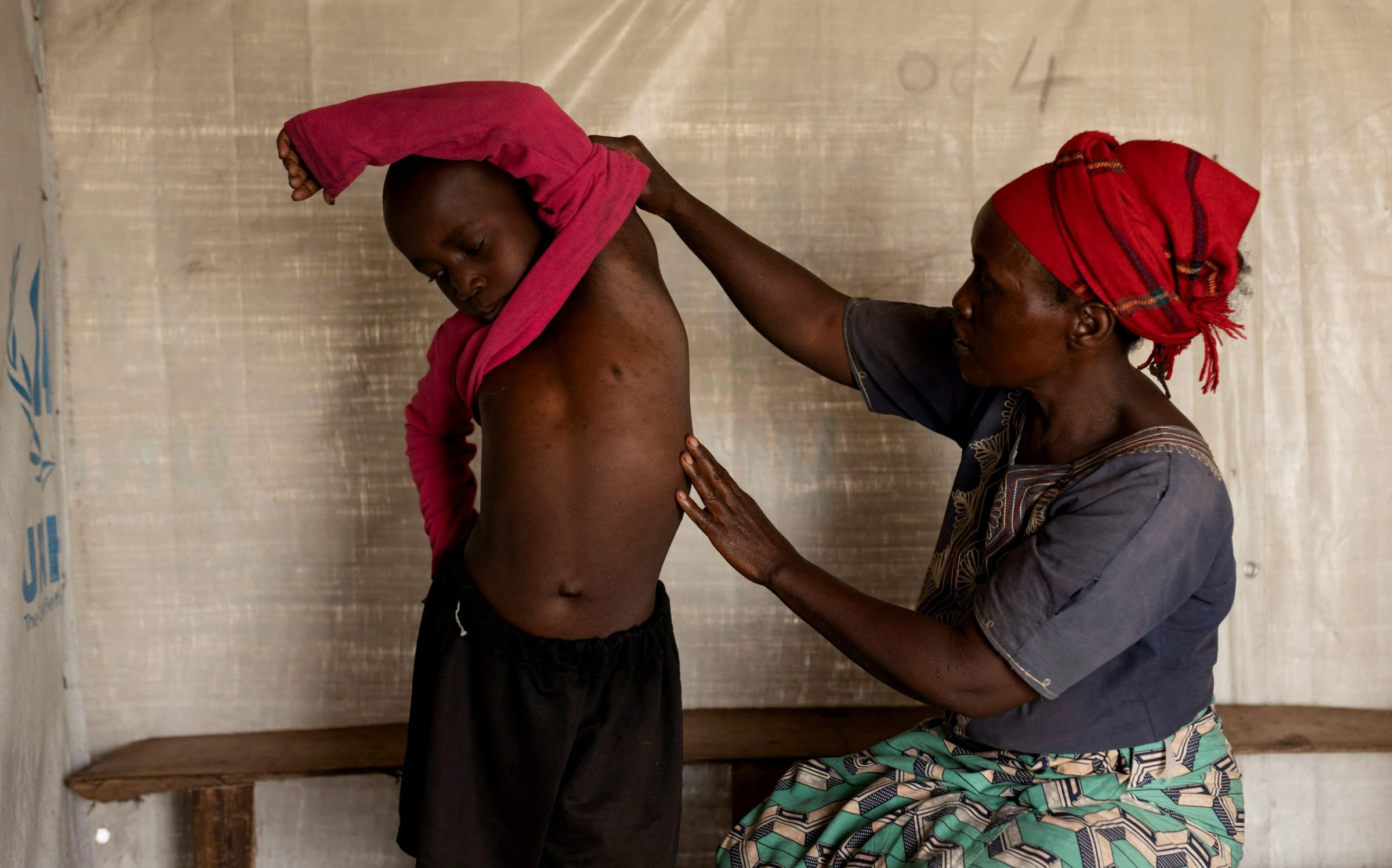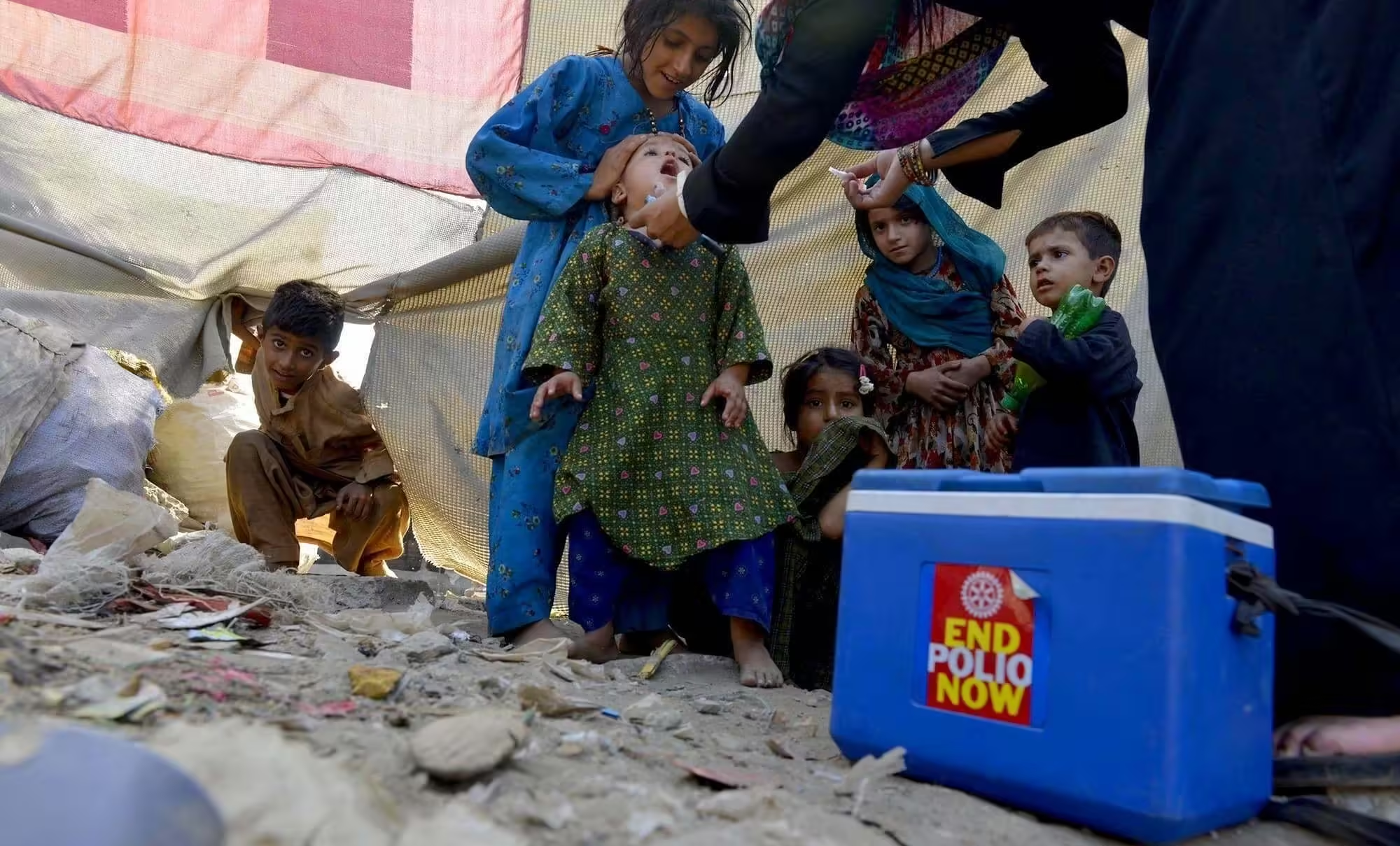Scars from mpox pustules remain visible on 7-year-old Grace Kabuo’s face and on several of her playmates at a camp for displaced people near Goma, Democratic Republic of Congo. Despite her recovery from the virus, her mother, Denise Kahindo, remains uncertain about how Grace contracted it.
Experts are increasingly concerned about this new mpox outbreak, driven by a new variant that appears to spread more easily than previous strains. In the past month alone, local doctors have identified 130 suspected mpox cases, predominantly affecting children and adolescents, at a nearby facility treating displaced people. Half of these cases involve children under five.
Dr. Pierre-Olivier Ngadjole, a medical advisor for Medair, notes that the close quarters in displaced person camps facilitate the virus’s spread. Mpox, a viral infection that spreads through close contact, typically causes mild symptoms but can be severe and even fatal in some cases.
Since the start of 2023, the outbreak in Congo has resulted in approximately 27,000 cases and over 1,100 deaths, most of them children. The outbreak began with the Clade I strain but has since shifted to a new variant, Clade Ib, which appears to transmit more readily through routine close contact, especially among children.
Jean-Jacques Muyembe-Tamfum, head of Congo’s Institut National pour la Recherche Biomedicale (INRB), stresses the urgency of addressing the mpox crisis, which is a significant public health issue both within and beyond endemic regions.
Last year’s global mpox emergency, triggered by the Clade IIb variant, primarily spread through sexual contact among men who have sex with men, leading to extensive public health campaigns in the U.S. and Europe. In Congo, however, no vaccines or specific treatments are widely available, and access to medical resources is hampered by stigma, regulatory barriers, and ongoing outbreaks of measles and cholera.
While Congo has approved two mpox vaccines, funding and regulatory challenges have limited their availability. Only a few countries have donated vaccines, and WHO approval processes are slowing the distribution.
At the Munigi treatment center, some children are isolated in rooms previously used for Ebola outbreaks. Despite their recovery, these children, like 5-year-old Sandrine Sibomana, show visible lesions.
The situation remains dynamic, with only a few cases sequenced so far, all identified as Clade Ib. More cases are likely going undetected. Cris Kacita, head of the mpox response for the Congolese government, highlighted the need for thorough investigations and follow-ups.
Muyembe-Tamfum and other health officials are working to secure vaccines and further investigate the new variant’s transmissibility and severity. The mortality risk for children from Clade Ib remains uncertain, but the potential for increased cases is a growing concern.
Rosamund Lewis, mpox lead at the World Health Organization, notes that while the current number of affected children is small, the situation could escalate if not properly addressed.



